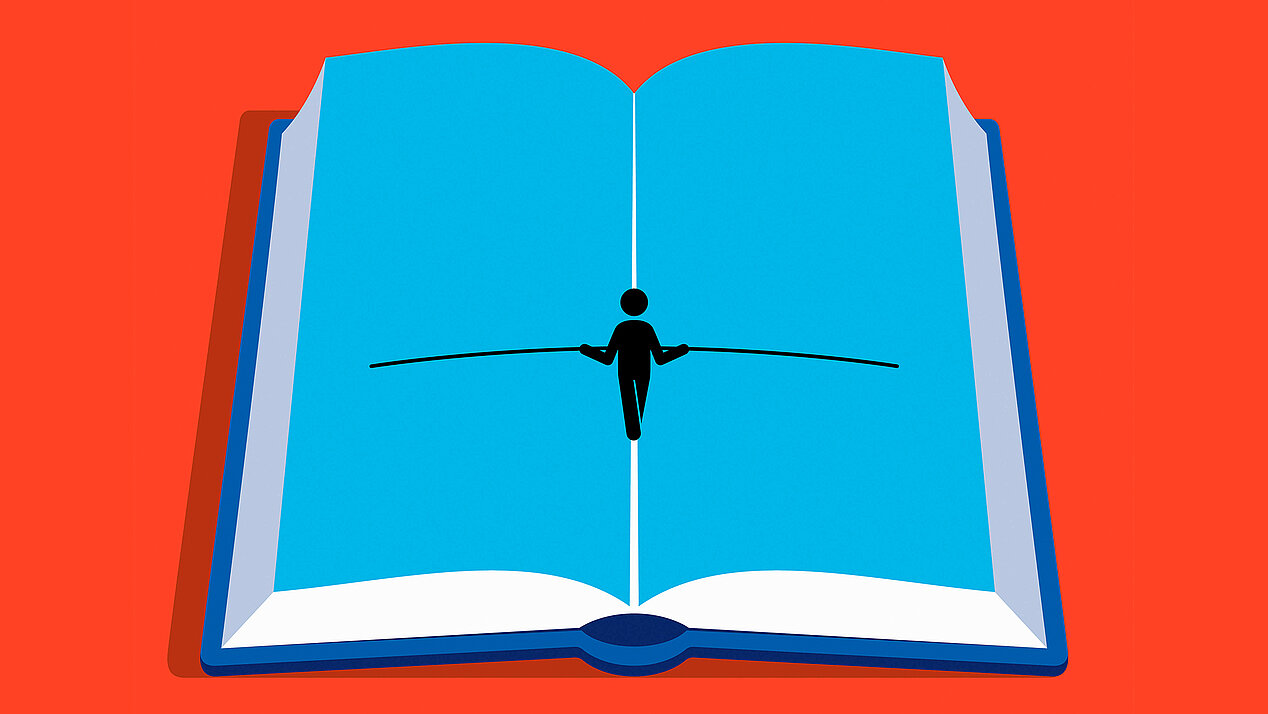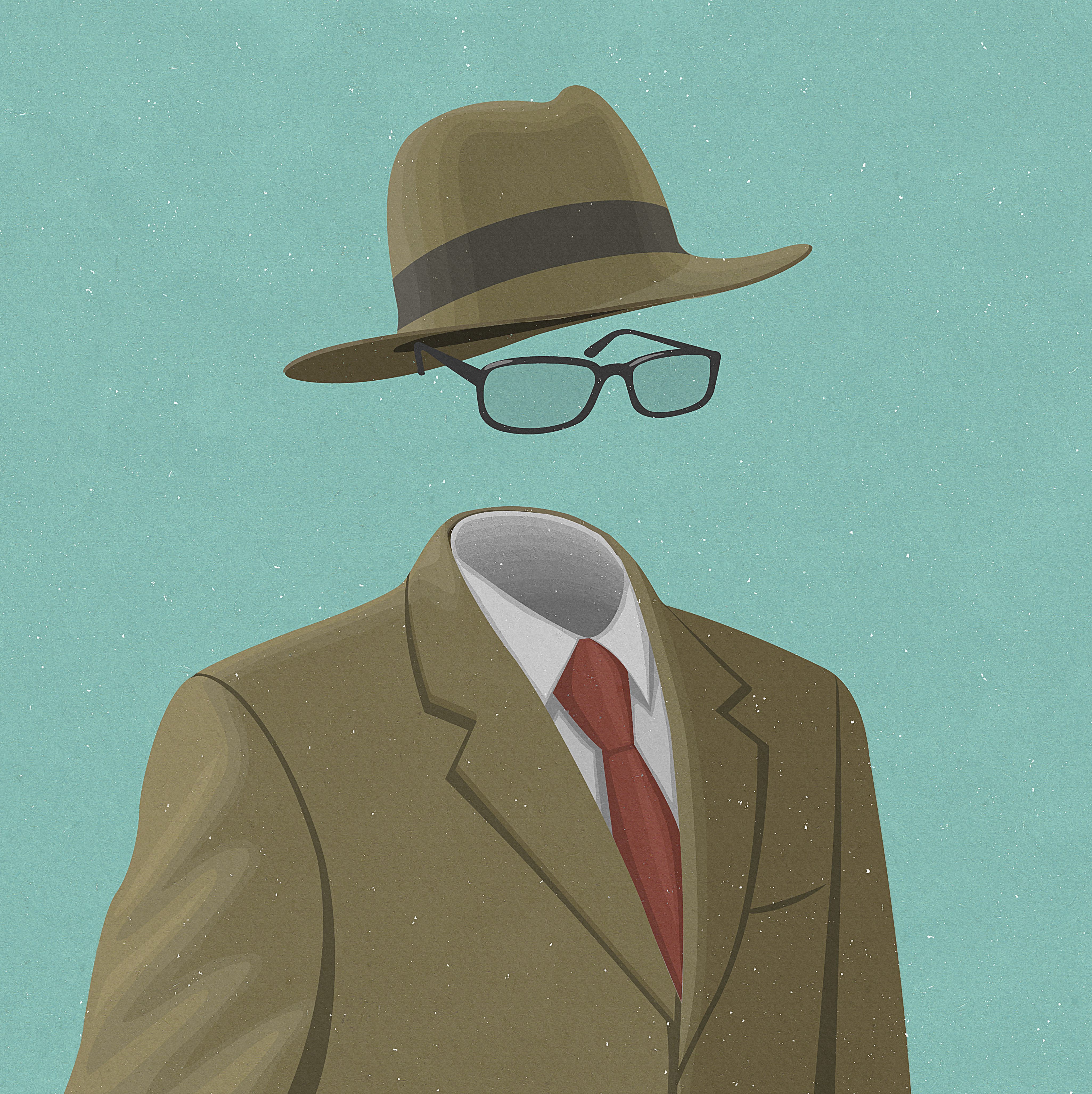
One of the main dangers when faced with the task of speaking about Europe is the reversion to pacifying and uncontentious banalities. Without fail, at least within polite society, we all agree on the following: yes, the foreign is worth discovering; yes, translating is a good thing; yes, peace among the people in our part of the world is an extraordinary accomplishment, and so on. However, these important principles become implanted in one’s head without anything being done at all to act on them concretely. In order not to fall into the same trap, I would like to try to refer to a number of interesting incidents from my fragmentary and controvertible experiences as a translator (from German into French) and as a French native speaking writer (who has written other books about German personalities).
I would like to begin with an incident that in view of the difficulty of formulating (concrete) action for and general discourse about Europe is extremely enlightening and symptomatic. I was invited to the Maison de l’Europe in Paris to lead a round of discussions with the important Austrian writer Werner Kofler and his no less important translator Bernard Banoun, who was awarded the Prix de Nerval for his work. The topic of our discussions was Europe. Because we did not have anything generally to say about Europe or were not in a position to speak much about it, the three of us spoke about the peculiarities of Austrian literature, accusations of provincialism that Elfriede Jelinek had to deal with, the influence of Thomas Bernhard, and so on.
We spoke to one another in German and I translated for the audience into French. Our conversation was neither academic nor hard to understand, it was much more about reallife experiences of linguistic togetherness and European issues. However, the director of the Maison de l’Europe stepped onto the podium to interrupt us and insisted we stick to the topic: Europe! In his eyes, Bernhard, Jelinek and Kofler were not “European” enough. Then he impressed upon us a famous saying of Umberto Eco: “Translation is the language of Europe.”
Without wanting to stoop to polemic, I am of the opinion that we are dealing here with a good example of the dangers of motherhood statements that plague the debate about Europe. The challenges that Europe has to face all too often are technical and actually quite mundane in nature and relate to translating and interpreting, as well as to pay rates for translators and interpreters.
We are a sign, meaninglessly painless and we have almost lost the language in the foreign.
Hölderlin, Mnemosyne
There is something quite comforting about translations generally or the importance of foreign literature but it is actually the case that very few authors are accepted outside of their own linguistic regions. The literature business continues to organise itself around ist own national authors. (One exception is American literature, which is quite deservedly the focus of much attention.)
One must always remember the important role of the translator. As a writer of French novels, who has been translated into German (by Katja Roloff), and as a French translator of the German author Peter Weiss, I have more than often seen that the name of the translator in reviews or book presentations will not be mentioned once.
The delicate transfer of words and ideas from one language into another, the many painstaking hours spent with authors or native speakers considering whether to use this or that idiomatic expression, all of this work is seen as a vague, anonymous service and is all too often not recognised. The belief in a transparency of language, the sweet ideology of a “tout communicationell,” the idea of some sort of ubiquitous communication is much more widespread than one realises.
In February 2007 a dispute arose in Germany during which a number of columnists harshly criticised a claim for better pay being made by hard-pressed translators. They were derided as divas. It is startling to discover that a translation of 1800 characters on a normal German page will be paid worse than a translation of around 300 characters of a shorter French page. One should also realise that a translator mostly practices several careers at once. He or she acts as an agent for an author whom he or she would like to translate, and is often trying to convince an editor who doesn’t know the language of the author to become interested in the writing of someone who’s hardly known. (I speak here not of Michel Houellebecq or Amélie Nothomb, but of important authors such as Christian Prigent or Régis Jauffret, to name just two, who are completely unknown in Germany.) Of course the same applies for very good German authors who are unknown in France.
The same translator who translated a press kit for a book that was to be translated also produced a twelve-page test translation of the book, without any guarantee that all this work would lead to something concrete. My wish is that in the debate about translating the simple but fundamental questions will never be forgotten. These are questions of proper payment, as well as the recognition of the person (even if it only involves naming the translator in a review) and the work of the translator. The way that we French relate to Dostoevsky or Döblin is based on translations that have recently undergone a major revision and have given us back the impenetrability and strangeness of these authors. They have been freed from the course of French syntax, which the first translators were determined to retain at all cost.
At this point the work of André Markowicz must be acknowledged for the rediscovery of Russian novelists. When asked about his status as a star translator he answered: “At least I was successful in one thing: that attention is paid to translation, that one realises that the book is translated. In theatre there is normally no reference to the fact that the piece was translated. For the first time a translator is seen as the author. And that is good.”
Olivier Le Lay’s new translation of Alfred Döblin’s Berlin Alexanderplatz has only recently made possible a comprehensive rediscovery of this novel that was drastically cut by a quarter in the first translation and was smoothed over in the extreme. We experience a moment of shock at the discovery of a completely different book that we’d known for a long time under the same name. A new syntactical line and new perceptions were hidden in the text. We became aware of our fragile hold on the world. Indeed, our perception of the world and of life feeds off what we learn from great works in world literature.
The danger of translation comes from wanting to make a text French in the sense of shaping it to our form. That’s why Olivier Le Lay says he’s happy to be told that the translation is quite noticeable during reading. Why should a translator try to lose the foreignness of a text when it is this aspect that we are searching for?
It is this relationship to the foreign that I want to describe, this loss of the implicitFassbinness of language, this kind of bodily realisation that language is never a given, that it will be relentlessly undermined by misunderstandings and resistance. I have lived almost seven years in Germany with only short breaks in France.
Why should a translator try to lose the foreignness of a text when it is this aspect that we are searching for?
Like many others I have experienced that feeling of being inbetween – of course, much less drastically than Hölderlin’s use of the term – such that after some months, no matter how well one masters the language, it always remains a foreign language. Suddenly, one finds oneself dealing with a French mixed with German (many Germanisms are beginning to replace my native tongue) and a German peppered with French. One finds – and this is an especially painful experience for a translator – that in French one begins to lose one’s natural feeling for language (whatever you hold that to be) with regard to the syntax and even the vocabulary – the difference between Imparfait and Passé Simple or the use of prepositions, just to name two points.
You also have the feeling that you are losing your connection to contemporary expressions in your mother tongue, to its various transformations, to its incessant regenerations. Every time I return to Paris I am confronted with many new sayings. But this feeling of being in-between can also teach us to “dance on the tightrope,” as Deleuze and Guattari call it in their book about Kafka (Für eine kleine Literatur).
The two philosophers impress upon us the need to look deeper into language, to become nomads and immigrants of our own language, to become minorities, just like Kafka, who enriched Goethe’s German through Czech and Yiddish. He refined the German language, freeing it from the incrustations and clichés that had impoverished it at the beginning of the century in Prague.
In another way the books of Bernard Lamarche Vadel (Vétérineres, Sa vie son oeuvre) are impressive examples of a transfer of German into French, that affect a quite peculiar, ‘unusable’ but extremely beautiful and disconcerting language. It is as if Thomas Bernhard crept into the classical French of the moralists of the Grand Siècle.
A further aspect of this hybridisation consists of choosing topics that allow a reconstruction of a national history that is not that of the author. The theme of my first three novels (the German title translates as Attacks: Fassbinder, Vesper, Nico. Three Novels, translated from the French by Katja Roloff) is the rebuilding of Germany in the 1960s and 70s, essentiality from Fassbinder, Bernhard Vesper and the Red Army Fraction through to the singer Nico. I have never dared to see myself as an historian or a specialist of such sensitive and problematic terrain, rather I have projected my own biographical tensions into it. I have tried to imagine a possible Baader and Fassbinder, who are just as credible and probable as the historical characters, from the viewpoint of a Frenchman who absorbed the film collages of a Godard as well as the poetry of an Apollinaire, and who was no less fascinated by the boxing technique of a Mohammed Ali. I created this from historical, artistic and sporting material, foreign material, and in this way approached German history.
The fact that genres and influences can be mixed up is something that Malcolm Lowry gives admirable expression to in the preface of his novel Under the Volcano. He says: “It can be considered a type of symphony or as a kind of opera – or even as a western. I wanted to make Jazz, a poem, a chanson, a tragedy, a comedy, a farce and more out of it. (…) It is a prophecy, a political warning, a cryptogram, a crazy film, a slogan on a wall.”
It is these cross-connections, these peculiar historical, linguistic and generic transcriptions that might one day make up the distinguishing features of European literature – indeed, which are already a component of it – and it is the translator who will make this happen.
Translation: Chris Robertson
Culture has a strategic role to play in the process of European unification. What about cultural relations within Europe? How can cultural policy contribute to a European identity? In the Culture Report Progress Europe, international authors seek answers to these questions. Since 2021, the Culture Report is published exclusively online.
